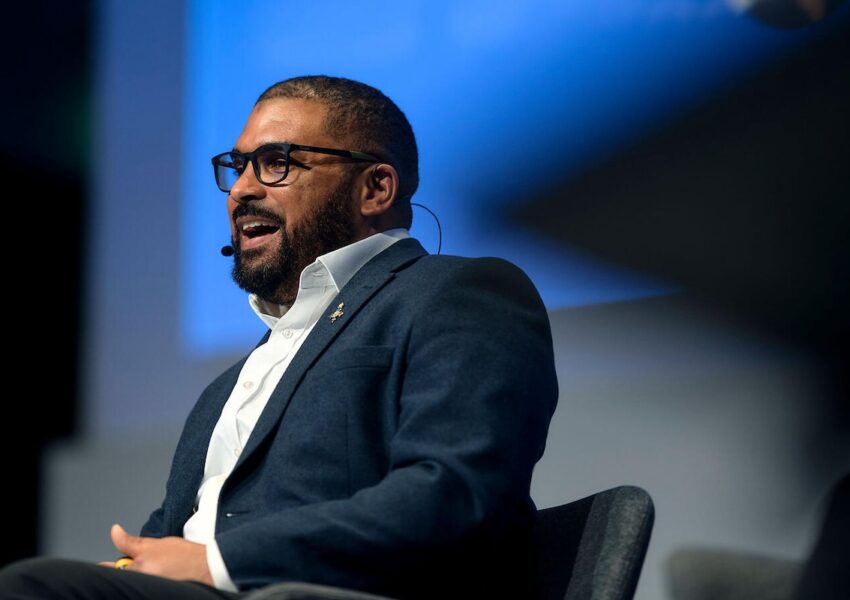
As a well-established advocate for implementing living experience into system change, Steve Gilbert OBE shares his thoughts on doing it effectively and for the right reasons.
Steve Gilbert OBE is a leading voice in living experience advocacy, dedicated to embedding the perspectives of those living with mental illness into policy, practice, and systemic reform. As a consultant, speaker, and advocate, he has spent years working to dismantle stigma and ensure that patient voices are central to the development of mental health services. His work spans various sectors, from governmental reviews to grassroots advocacy, all driven by his deeply personal journey through the mental health system.
Stigma and misunderstanding
“When I was 17, I was seeing a Child and Adolescent Mental Health (CAMH) psychologist,” Gilbert explained. “Looking back, I had lots of mental health difficulties, but at 21, when I first experienced depression, I didn’t have any language for it. That was the scariest thing.” Gilbert’s early experiences shaped his understanding of how isolating and invalidating it can be to seek help for mental health issues, particularly within a system that often fails to recognise the complexity of individual experiences.
His struggles in accessing care and being taken seriously by medical professionals ignited his commitment for systemic change. “I had multiple health issues since I was 10, and I had never not been taken seriously – until I faced mental health challenges. That’s still the experience of so many people today. Part of the problem is that frontline professionals, like GPs, are expected to know enough about everything to triage effectively. But when it comes to mental illness, stigma and misunderstanding still play a significant role in how people are treated.”
His advocacy work gained momentum as he became involved in national mental health reviews and anti-stigma campaigns, particularly those focused on addressing racial disparities in mental health services. “I remember sitting with the data, having these conversations with my mentors, and feeling so angry. The inevitability of the situation – particularly for Black people – was staggering. Life circumstances mean people will end up with complex mental health needs, yet nothing is changing the track they are on.”
For Gilbert, living experience leadership is not just about representation – it’s about impact. “A phrase I always come back to is from British rowing: ‘Will it make the boat go faster?’ That, for me, is key. I’ve had enough experiences personally to put myself in the majority of situations, but what really matters is focusing our efforts on developments that will actually make a difference.”
Don’t tokenise us
The evolution of living experience in mental health care has been a gradual process, but he is encouraged by the shift in perception. “For a long time, service users weren’t seen as experts in their own experiences. But we’re shifting that narrative. Now, the question is, how do we make sure that living experience continues to shape the system, rather than being tokenised?”
Looking ahead, Gilbert is focused on ensuring that living experience leadership remains a core pillar of mental health reform. “I want to make sure that every decision made about mental health services considers the person at the centre of it. If it’s not making things better for them, then we need to rethink it.”
For him, one of the biggest gaps in mental health discourse is the lack of attention to structural inequalities. “We talk a lot about mental health in broad terms, but we don’t talk enough about how different communities experience the system. Black people, for instance, are more likely to be sectioned under the Mental Health Act, yet we don’t see enough focus on changing those underlying disparities.”
This is particularly relevant now, as the long-awaited reform of the Mental Health Act 1983 moves through Parliament, with an expected implementation later in 2025. The proposed changes aim to address key issues such as the disproportionate detention of Black individuals, the overuse of restrictive practices, and the lack of patient autonomy in decision-making. While he acknowledges the importance of these reforms, he remains cautious about their real-world impact. “Legislation alone won’t fix the system. We need a culture shift – one that values living experience and actively works to dismantle systemic biases that have been ingrained for decades.”
Designing with living experience
As the reform process continues, Gilbert is committed to ensuring that the voices of those with living experience remain at the forefront of discussions. “We can’t afford for this to be just another policy change on paper. It has to translate into meaningful improvements in care, in outcomes, and in how people experience the mental health system.”
Ultimately, his work is about ensuring that mental health services are not just designed for people, but with them. “It’s about embedding living experience at every level – whether it’s in policy discussions, service design, or frontline care. And that’s not just about listening; it’s about acting on what we hear.”
Through his continued advocacy, consultancy, and public speaking, Gilbert is pushing for a future where mental health care is more inclusive, compassionate, and effective. His message is clear: living experience is not just valuable – it is essential in shaping a system that truly serves those who need it most.
Steve Gilbert OBE is a Living Experience Advisor at Thalamos, where he advises on delivering patient-centric approaches to improve outcomes and experiences for people subject to the Mental Health Act.


